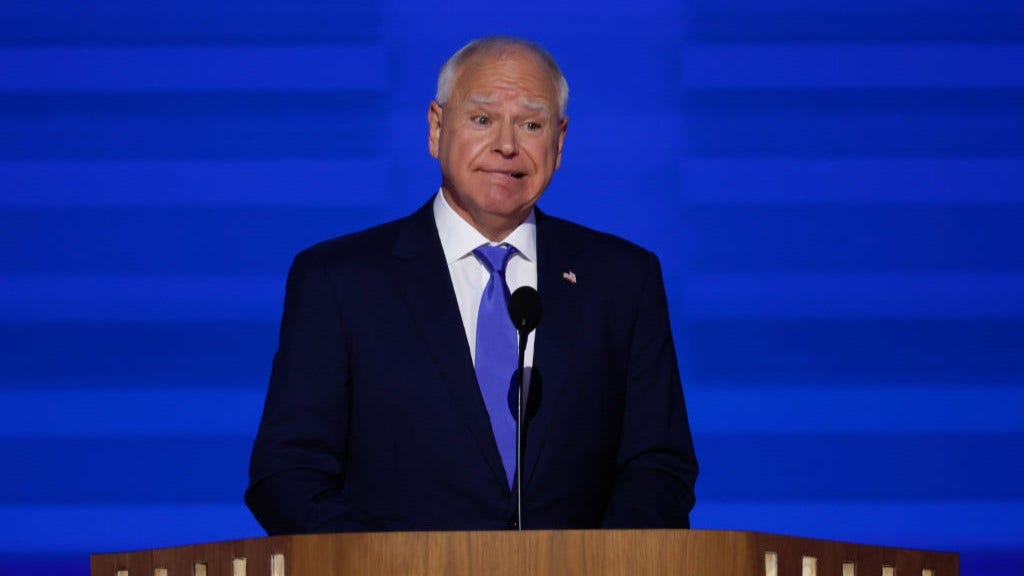Minnesota Gov. Tim Walz attended the Michigan-Minnesota game on Saturday and was met with booing from college football fans as his motorcade made its way to the stadium. Despite the negative reception, Walz took to social media after the game to praise his home state’s rival, Michigan, for their game day hosting skills. This post drew criticism from some who felt he was being disloyal to Minnesota, especially after being booed by Michigan fans. The University of Michigan ultimately won the game with a 27-24 victory over Minnesota in the Little Brown Jug game.
A viral TikTok video captured the moment when fans booed Walz and shouted derogatory remarks such as “Tampon Tim” and “Get out of here.” The video quickly garnered over 1.5 million views on the platform. Reports indicated that the booing stemmed from Walz’s security detail holding fans in the rain for a prolonged period as he entered the stadium. Despite the negative reception, Walz remained positive about his experience at the game and highlighted the efforts of students on campus to register voters.
Walz has been gearing up for a debate against Republican challenger JD Vance and the game was seen as his final high-profile public appearance before the debate. Walz’s attendance at the Michigan tailgate ahead of the game and his subsequent social media posts praising Michigan’s game day environment was met with backlash from critics who believed he should have shown more loyalty to his home state. The incident served as a reminder of the challenges faced by political figures in navigating public events where they may face criticism or pushback.
As criticism mounted on social media, Walz faced further backlash for not remaining loyal to his home state and its team despite being booed by Michigan fans. The incident highlighted the delicate balance politicians need to strike between showcasing their support for various causes and parties while also maintaining a level of loyalty to their constituents. Walz’s decision to attend the game and post about it on social media ultimately sparked a debate among supporters and critics about the expectations placed on public figures in their interactions with sporting events and rivalries.
The conflicting reactions to Walz’s attendance at the Michigan-Minnesota game underscored the challenges faced by political figures in engaging with public events and maintaining a positive public image. Despite facing booing from college football fans, Walz remained positive about his experience at the game and extended praise to Michigan for their hosting abilities. The incident served as a reminder of the scrutiny faced by politicians in their public appearances and interactions, as they navigate the expectations of their constituents and the broader public.
Walz’s attendance at the game and subsequent social media posts praising Michigan drew criticism from some who felt he was not showing proper loyalty to his home state. The incident brought to light the complexities of political figures engaging in public events and the expectations placed on them by various stakeholders. As Walz prepared for his upcoming debate against Republican challenger Vance, the incident at the game served as a backdrop for discussions around political loyalty and the challenges faced by politicians in maintaining positive public perceptions.













